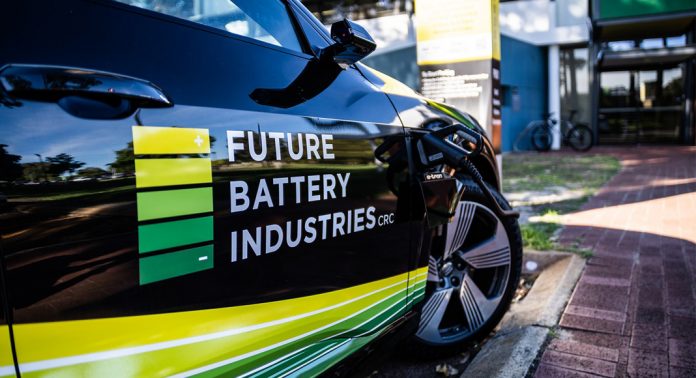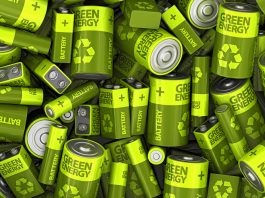Stedman Ellis, Chief Executive Officer of the FBICRC, details how the diversified battery industry offers a $7.4bn opportunity for Australia.
Under the Australian Government’s Cooperative Research Centre Program, the Future Battery Industries Cooperative Research Centre (FBICRC) brings together partners across the battery value chain from Australia’s established strength in mining through to processing, manufacture, services and recycling and reuse of batteries.
Cooperative Research Centres are jointly funded by the Federal Government, industry participants, and research organisations to support Australian industries in solving critical issues, developing new technologies, products, and services and competing on the world stage.
Established in 2019, the FBICRC provides a platform to enable collaboration along the battery value chain. It is the largest partnership of industry, government organisations, and research partners focused on battery industries in Australia. With nearly 70 participants and our ability to access the highest calibre research and industry expertise, we aim to strengthen Australia’s participation in global battery value chains.
A report we recently commissioned has revealed that a diversified battery industry could add over 34,000 jobs to the Australian economy with an estimated value of $7.4bn by 2030.
The ‘Future Charge: Building Australia’s Battery Industries’ report compiled by Accenture offers a comprehensive assessment of Australia’s economic opportunity to leverage its competitive advantages as a major supplier of battery minerals and expand its role within a growing global industry.
As well as quantifying the value-adding opportunities available, the report proposes a set of actions that are required from government and industry to capture the battery opportunity. Demand for batteries has grown steadily but is now forecast to accelerate, increasing nine to 10-fold over the next decade, with sales expected to reach US$133-151 billion by 2030.
We believe the convergence of improved affordability, increased demand for energy storage, and a favourable regulatory environment has placed the battery industry on the cusp of unprecedented growth.
Batteries are manufactured through a complex value chain from mining, refining raw materials, to the manufacturing of cells, battery packs, and finally integration and end of life. Battery technology and manufacturing have matured rapidly since 2010, with unit prices decreasing by 88%. Batteries are now the preferred technology for electric vehicles, massively outpacing hydrogen fuel cells and increasingly cost-competitive with internal combustion engine vehicles.
The Future Charge report identified six opportunities for Australia to expand its presence across the battery value chain:
- Continue to invest and expand the refining capacity of locally mined materials;
- Establish active materials manufacturing capability to serve the global value chain;
- Establish battery pack manufacturing and assembly capability focusing on specialised use cases;
- Establish cell manufacturing capability to complement battery pack manufacturing and assembly activities;
- Leverage domestic capability in integration and maintenance to export services to the region; and
- Create a circular economy for battery materials.
The rapidly maturing domestic market for energy storage systems, both on and off-grid, is also providing opportunities at every step in the value chain, including the potential creation of tens of thousands of new jobs across the country and a multi-billion-dollar injection into the economy.
While Australia and China lead on eight of the key critical battery minerals, our mineral strengths are complementary. Currently, Australia is the dominant player in the mining of battery materials – with around half the global lithium market and a leading role in other vital metals such as iron (40% of global supply), manganese (23% of global supply) and vanadium (19% of global supply). Some of Australia’s strongest minerals (iron, manganese, lithium, and nickel) are some of China’s weakest, and vice versa.
In light of recent trade tensions and the disruption caused by COVID-19, governments across the globe are increasingly looking to diversify their supply chains. This will be necessary in order to meet the growing global demand for batteries and while countries such as Germany, the UK, Finland, and Canada are vying to fill this emerging gap – none have the access to raw materials that Australia has.
Batteries are an important part of energy systems, and as the geopolitical environment is put under stress, concern about the current structure of the value chain is growing. The Accenture report states that:
“In response, major countries have already begun to diversify their supply chains and demand more sustainable and transparent battery life cycles. The EU has announced a new Sustainable Batteries Regulation with a range of requirements, including sustainable and responsible supply of raw materials. The US has developed a Federal Strategy to Ensure Secure and Reliable Supplies of Critical Minerals.
“Australia can position itself as a reliable alternative in global battery value chains. It is well positioned because of its wide breadth and abundance of key minerals, openness to trade, and low sovereign risk. These factors, combined with Australia’s long history of successful participation in mining exports and global supply chains, position Australia well for the next phase of industry growth.”
The potential for Australia to augment its existing role within a growing global industry is already well understood. This report provides a compelling business case for Australia to develop into a competitive player in the international battery industry supported by our reputation as a clean and reliable supplier. With significant existing downstream investment in value-adding opportunities, we are on the cusp of reproducing the present generation of battery chemistries from locally sourced materials.
Stedman Ellis
Chief Executive Officer
Future Battery Industries Cooperative Research Centre (FBICRC)
admin@fbicrc.com.au
fbicrc.com.au
Please note, this article will also appear in the seventh edition of our quarterly publication.









